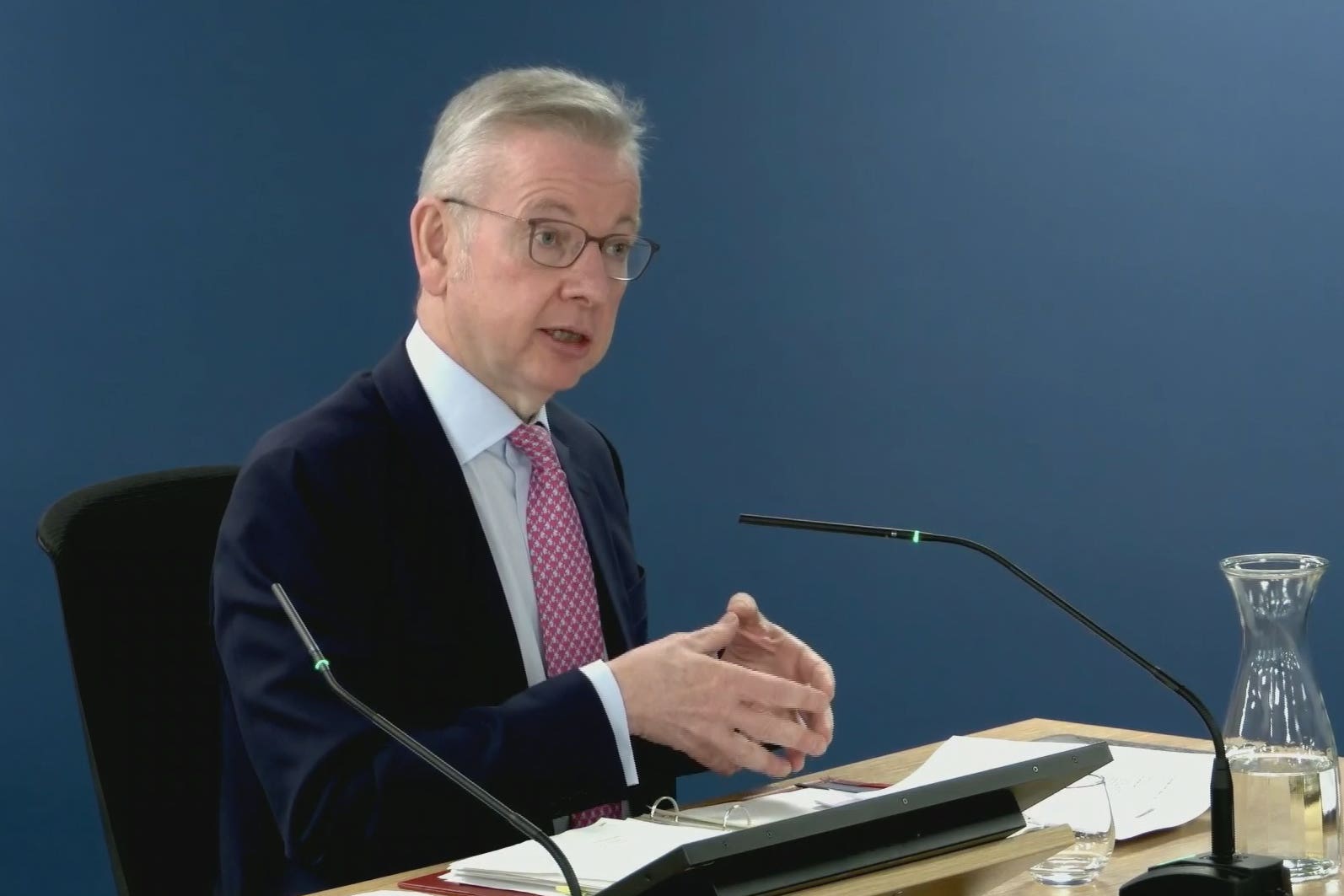Your Covid apology is accepted, Mr Gove. But the public still demands justice
Editorial: Michael Gove gave a good account of himself at the Covid inquiry – but he and his colleagues still deserve to be censured, apology or no apology

If I may… apologise to the victims who endured so much pain, the families who endured so much loss as a result of the mistakes that were made by government in response to the pandemic. As a minister responsible for the Cabinet Office, and who was also close to many of the decisions that were made, I must take my share of responsibility for that. Politicians are human beings. We’re fallible. We make mistakes and we make errors.”
There is no reason to doubt the sincerity of Michael Gove’s apology for errors made by the government during the pandemic. It was not what might be called a “Tony Blair” or “Priti Patel” apology – “I’m sorry you’re upset but not sorry about what I did.”
If not actually on behalf of those who served in the Johnson administration at the time, it still represents a welcome, if overdue, expression of deep regret for the failure to respond to the pandemic – and, it’s implied – at all stages of the emergency. It would have been better if the man leading the government at the time, Boris Johnson, had issued such an apology long ago, but seeing as it proved so difficult to get him to take responsibility for Partygate, or indeed much else, that was hoping for too much. Mr Gove’s unexpectedly unequivocal statement puts some pressure on Mr Johnson to follow suit when he appears before the Covid-19 inquiry.
Although Baroness Hallett’s inquiry isn’t a trial and no one is going to be found guilty or innocent. Nonetheless, as it has developed, Mr Johnson certainly has a case to answer about the way he ran his government in those difficult times. Mr Gove made a stab at defending Mr Johnson’s peculiar way of weighing decisions – gladiatorial rather than inquisitorial – but was not wholly convincing, and especially when those who were closest to the then premier were unanimous in their unfavourable verdict on his fitness for such a crisis. In a word? “Trolley”.
Mr Gove is too shrewd a politician not to realise that his eye-catching apology – the first of its kind to be couched on behalf of the whole administration – wouldn’t deflect attention from the actual substance of the failings he has “confessed” to. In that respect, his mea culpa is similar to that offered by Matt Hancock, former health secretary, earlier in the inquiry.
For much of the many hours Mr Gove spent answering questions there were attempts to deflect blame, just as there were when Mr Hancock was before Baroness Hallett and Hugo Keith KC. At times, Mr Gove indulged himself as if leading a seminar at some school of government on the structural weaknesses of the cabinet office. As he recalled the dysfunction of the cabinet office, which he led and was a centre for the pandemic response, there was no sense that he might have had some agency over its workings. It sounded rather like an alibi.
The same goes for his pleas that he relied on the Department of Health for reassurance in the early days of the pandemic, again downplaying his influence at the heart of government with the prime minister. Most bizarrely, Mr Gove chose to lob the idea that the virus was manmade into the proceedings – the idea being that it could not possibly have been prepared for, by anyone in any possible universe.
By the time Mr Keith had restrained Mr Gove, the damage had been done – the conspiracy theory had been detonated. Mr Gove did concede that the country locked down too late in March 2020 – but the impression he gave was that it was all because the machinery of the government was rusty and slow. Mr Hancock, Mr Johnson and Mr Gove himself did their very best, we were expected to believe.
Mr Johnson was too devoted to liberty, which, Mr Gove implied, was no crime. He expressed his admiration for Mr Hancock, but the way that Cobra, the civil contingencies secretariat, cabinet committees, the cabinet and the cabinet office were configured meant that, according to him, catastrophe was virtually inevitable.
Mr Gove has a great deal of experience in government. He also understands how politics and the media work – and knows how important it is to get your apologies in early, rather than being seen to have them dragged out of you. His testimony was eloquent, occasionally verbose and sometimes fascinating, and he was even bold enough to try to charm the chair.
He deserves thanks and praise for debunking the Great Barrington Declaration and the widespread misunderstanding about the Swedish pandemic experience. For his own purposes, he gave a good account of himself, but he and his colleagues still deserve to be censured – apology or no apology.



Join our commenting forum
Join thought-provoking conversations, follow other Independent readers and see their replies
Comments